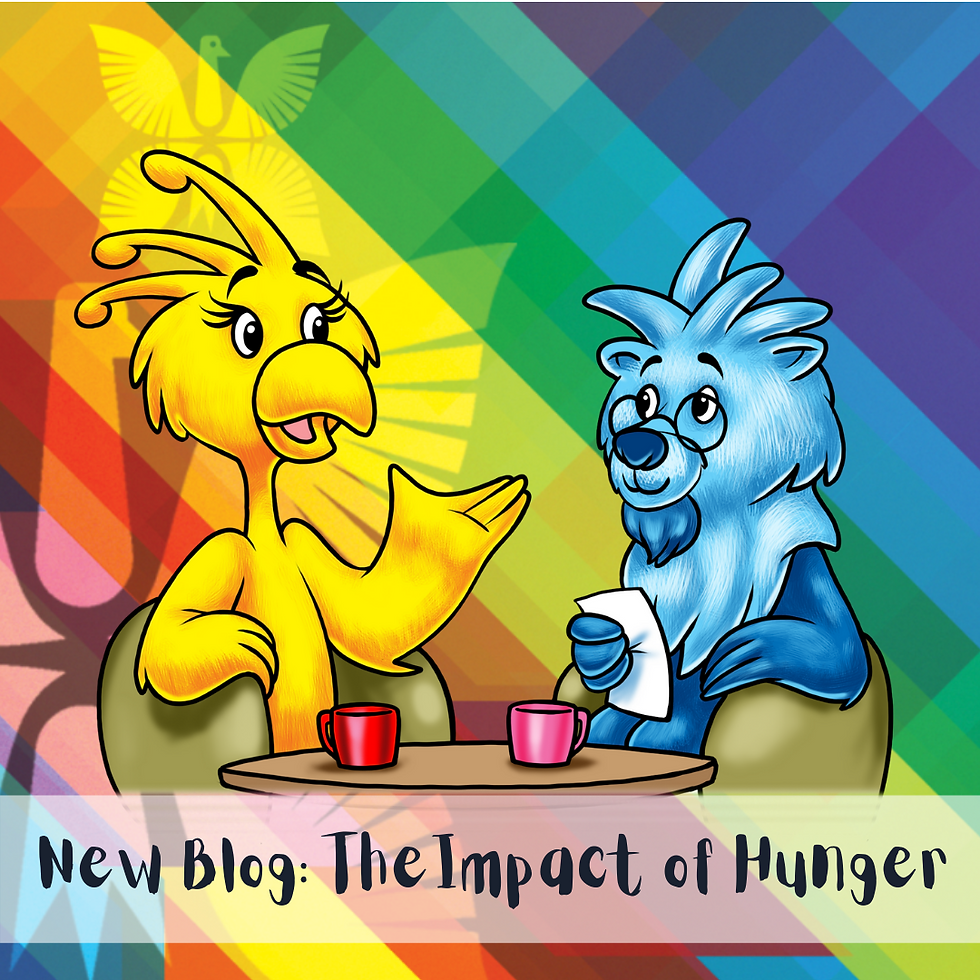The impact of hunger
- Phoenix Education

- Nov 9, 2020
- 2 min read
This week during our #kidscovidmh chat, we discussed the mental health implications of decisions like those that have led to many children potentially being left hungry this half term.
Rather than the whys and wherefores, or the political debate and morale questioning that can easily arise as a result of the recent free school meals decisions, we were keen to focus on exploring what this means to children's mental wellbeing and how we are most able to support them.
Our twitter chat covered a number of key themes which we share below for those who would like to recap or explore.

- Trust:
When we returned to school, many of us were focused on the importance of restoring the trust that had been lost in key relationships. WE spoke frequently about ensuring children felt they were able to trust us as teachers, trust the fact that we care about them, that we will listen to them and that we will hear them. We hope children will trust in themselves, in their ability and their judgement and we expect them to trust in us and the world we create for them.
It is difficult to comprehend the ways in which we will have damaged, broken or destroyed that trust by making children part of a world that appears to neither listen to nor care for them.
- Equality: Low self-esteem contributes to almost every mental illness and can be seen as the foundation of both challenging and antisocial behaviours. We try to combat low self-esteem by promoting the notion of equality; equal rights and opportunities, equal chances to achieve and the right to live, equally without the impact of labels or social restrictions. This week, in the middle of a global pandemic, we have publicly demonstrated just how unequal our society is and we have invited all of our children to bear witness to it. We must be aware of the ways in which this will change how our children perceive the world we live in and their position within it.
- Control: Whether it is the need to have their voice heard, the desire to support other children or the need to control their own enjoyment by controlling their food intake and or their participation in usual half time fun, many children have shown that they need to feel they can control the decisions that impact them. Children aren't willing or able to be passive bystanders in our society and the assumption that they are able to do this impacts their mental health and general well being.
It is obvious that the impact of suspending free school meals is much more far reaching than the children this decision has left hungry. Bearing witness to the decision and its impact has been significant and it is essential to address this when children return to school - potentially with a lack of belief in us, a lack of belief in themselves and a lack of trust in ours, and their, ability to make it right.




Comments